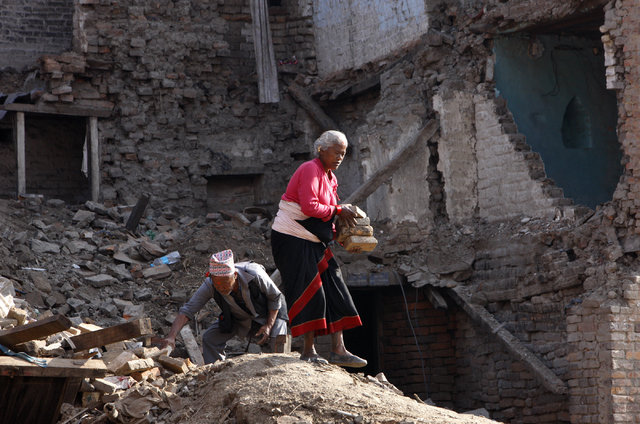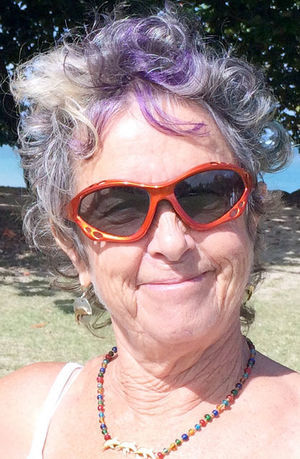LIHUE, Kauai (AP) — Anna Myers was in the bathroom of a hotel restaurant in Kathmandu when the room began to tremble. The toilet water sloshed around, spilling onto the floor where she braced her feet. On the other side
LIHUE, Kauai (AP) — Anna Myers was in the bathroom of a hotel restaurant in Kathmandu when the room began to tremble. The toilet water sloshed around, spilling onto the floor where she braced her feet. On the other side of the wall, the dining room erupted in screams.
“Get out! Get out! Get out!” the 71-year-old Princeville resident heard as she dashed out the bathroom and onto the street.
The day before a magnitude 7.8 earthquake devastated a large sweep of northwestern Nepal, killing more than 8,000 people and injuring 18,000 more, Myers landed at Tribhuvan International Airport to see the majestic Himalayas.
The snow-cloaked mountain range boasting the world’s highest peaks had long held a top spot on the semi-retired yoga teacher’s destination bucket list. But tourism was only
part of her planned adventure.
Myers had secured an opportunity to teach English for a week or two at a government school when the sightseeing portion of her trip was complete.
Little did she know she how severely her itinerary would change.
When the initial tremor subsided, most of the guests at the hotel where Myers was staying fled back to their homecountries. She didn’t.
“I felt and feel the need to help in any way that I can,” Myers wrote in an email.
And so the tourists with guidebooks and cameras rushed out as the first responders and survivors in need of shelter trickled in. Myers said the hotel was largely undisturbed by the quake, though she could not say the same for many guests.
Some took to sleeping outside in the hotel courtyard, weary of a powerful aftershock.
Among the incomers to the hotel was a German mountain climber who spent a night there after having survived the earthquake at the Mt. Everest base camp.
He was traumatized from being buried in the rubble. But he was grateful for surviving with only cuts and bruises. Three of his comrades at the camp did not make it out alive.
Stories like these contributed to Myers’ decision to stay in Nepal.
“Everyone says that if they are safe that is what is important, they can eventually rebuild a house,” Myers said in an email.
“These are resilient people although most
of them have never experienced anything like this.
“The monsoon season starts next month that is why we need to find shelter for people right away.”
And so Myers has joined the ranks of those providing survivors with on-the-ground relief. So far, she has helped three small villages with offerings of all the food, blankets, tarps and Styrofoam sleeping pads she could stuff inside a taxi.
“I am deeply grateful for being here and having the ability to help in this small way,” she said, typing on a hotel computer available to guests willing to wait in line.
Before she returns to Kauai, Myers said she will try to reserve a few days for herself to fulfill her wish of seeing the Himalayas. Otherwise, she will spend her time helping the Nepalese in need, one taxi ride at a time.




